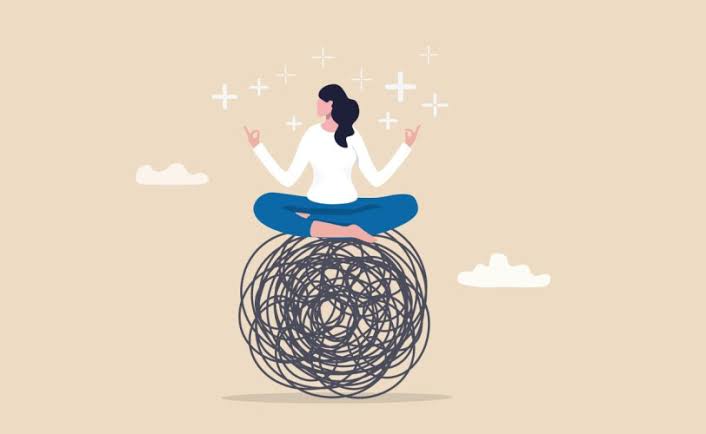Managing stress and anxiety is becoming more important in today’s fast-paced and demanding lifestyle. Many people experience daily challenges that can overwhelm their mental and emotional health, making it essential to adopt strategies that can help maintain balance. The right approaches combine lifestyle changes, mindset shifts, and practical coping methods to promote calmness and resilience in the face of difficulties.
Understanding Stress and Anxiety
Stress is the body’s natural response to challenging or threatening situations, often caused by work pressures, financial concerns, or personal relationships. Anxiety, on the other hand, is a persistent feeling of worry or fear, sometimes occurring without a clear cause. While occasional stress can motivate action, prolonged exposure can lead to physical exhaustion, mental fatigue, and serious health issues. Recognizing the signs early helps in addressing the problem before it becomes overwhelming.
Practicing Mindfulness and Meditation
Mindfulness encourages focusing on the present moment without judgment. Meditation complements this by promoting deep relaxation and mental clarity. Both techniques can reduce the constant stream of thoughts that fuel anxiety. Taking even ten minutes daily to practice breathing exercises or guided meditation can significantly improve mental well-being over time.
Key benefits of mindfulness and meditation include:
- Reduced negative thought patterns
- Better emotional regulation
- Improved concentration and focus
- Lower physical symptoms of stress such as headaches and muscle tension
Prioritizing Physical Activity
Exercise plays a powerful role in managing stress and anxiety. Physical activity stimulates the release of endorphins, the body’s natural mood enhancers, and helps reduce levels of stress hormones like cortisol. Activities such as walking, swimming, yoga, or even dancing can provide both mental relief and physical health benefits.
A consistent workout routine can:
- Boost overall mood and energy levels
- Improve sleep quality
- Enhance resilience to daily stressors
- Provide a sense of accomplishment and self-confidence
Building a Healthy Support Network
Having strong social connections is a valuable buffer against stress and anxiety. Talking to trusted friends, family members, or colleagues can help release emotional burdens. Support groups, both in-person and online, also offer a sense of belonging and shared understanding.
A healthy support system allows for:
- Emotional encouragement during tough times
- Constructive advice and problem-solving
- Shared activities that reduce isolation
- A reminder that challenges can be overcome collectively
Establishing Healthy Daily Routines
Consistency in daily habits helps create a sense of stability, which is vital for reducing anxiety. A well-structured day minimizes uncertainty and provides a balanced approach to work, rest, and leisure. Small changes, such as setting regular sleep schedules and allocating time for hobbies, can have a big impact.
A healthy daily routine should include:
- Regular sleep and wake-up times
- Balanced meal planning
- Scheduled breaks during work hours
- Time for relaxation and personal enjoyment
Limiting Exposure to Triggers
Certain triggers can worsen stress and anxiety, such as excessive news consumption, social media overuse, or high-pressure environments. Identifying these triggers and setting boundaries can help reduce unnecessary mental strain. For example, designating specific times to check news updates or social platforms can prevent constant exposure to stressful content.
Strategies for reducing triggers include:
- Turning off non-urgent notifications
- Creating a calming workspace
- Avoiding unnecessary confrontations or negative conversations
- Engaging in uplifting and educational content instead
Practicing Positive Self-Talk
The way we speak to ourselves has a significant impact on stress levels. Negative self-talk can heighten feelings of anxiety, while positive affirmations can promote confidence and calmness. Practicing gratitude, focusing on achievements, and replacing self-criticism with encouraging statements can transform one’s mindset.
Examples of positive self-talk include:
- “I can handle this situation step by step.”
- “I am learning and improving every day.”
- “This moment will pass, and I will come out stronger.”
Seeking Professional Support When Needed
There are times when stress and anxiety may require professional intervention. Therapists, counselors, and psychologists can provide tailored coping strategies and offer treatment options for more severe conditions. Professional guidance ensures that underlying causes are addressed, leading to long-term improvements.
Situations where professional help is beneficial include:
- Persistent or worsening anxiety symptoms
- Difficulty carrying out daily responsibilities
- Sudden changes in mood or behavior
- Sleep disturbances and appetite changes
Engaging in Creative Outlets
Creative activities such as painting, writing, music, or crafting can provide a therapeutic escape from stress. These outlets allow expression of emotions that might be difficult to communicate verbally. They also encourage focus on enjoyable tasks, reducing overthinking and anxiety.
Creative expression benefits include:
- Providing mental relaxation
- Offering a sense of achievement
- Encouraging self-discovery and confidence
- Diverting attention from stressors
Maintaining a Balanced Diet
Nutrition has a direct influence on mental health. Consuming a diet rich in fruits, vegetables, whole grains, and lean proteins supports brain function and mood regulation. Avoiding excessive caffeine, sugar, and processed foods can help maintain steady energy levels and reduce anxiety-related symptoms.
Nutritional tips for stress management include:
- Staying hydrated throughout the day
- Incorporating omega-3 fatty acids for brain health
- Eating smaller, balanced meals to prevent energy crashes
- Including foods rich in magnesium and vitamin B complex
Conclusion
Managing stress and anxiety requires a combination of mindful practices, healthy routines, and supportive connections. While occasional stress is a normal part of life, taking proactive steps to control its impact can significantly improve quality of life. By embracing habits that promote mental clarity, physical health, and emotional resilience, it becomes possible to navigate life’s challenges with a calmer and more focused mindset.



